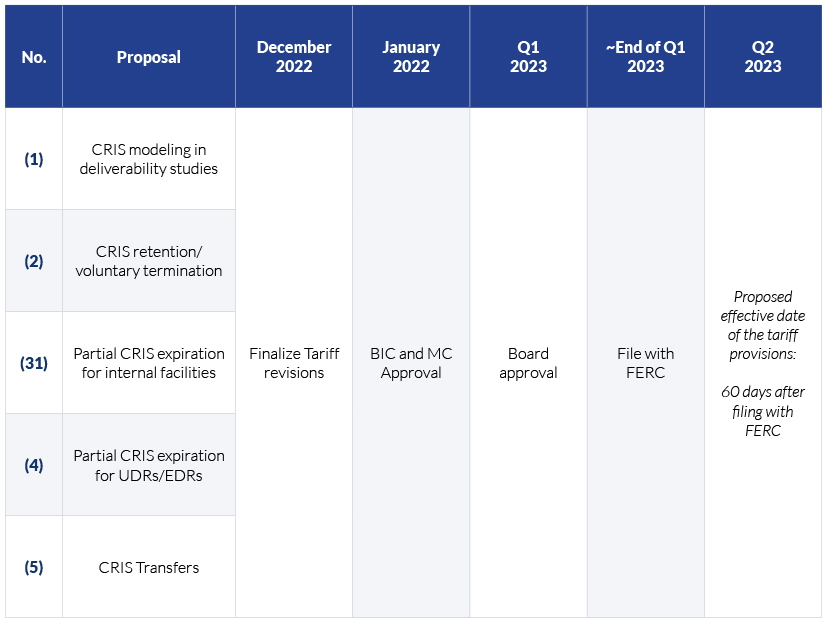p.p1 {margin: 0.0px 0.0px 0.0px 0.0px; font: 11.0px ‘Helvetica Neue’; color: #000000}
RENSSELAER, N.Y. — NYISO on Wednesday presented the Installed Capacity Working Group/Market Issues Working Group with a proposed timeline for finalizing tariff revisions related to capacity resource interconnection service (CRIS) expiration and transfer rules for deactivated facilities looking to adjust their unexpired CRIS rights.
The ISO’s Nikolai Tubbs told stakeholders that NYISO would be finalizing the discussion on tariff provisions related to the CRIS project, which has been an extended ongoing process. (See “Tariff Revisions on CRIS,” Study: NYISO Dynamic Reserves Could Lower Congestion, Costs.)
Currently, NYISO anticipates these new provisions to go into effect in the second quarter, or 60 days after they have been filed with FERC toward the end of the first quarter.
Scott Leuthauser of Hydro Quebec Energy Services asked about the status of external CRIS and whether it would be affected by any of the proposed revisions. NYISO attorney Sara Keegan answered that those rights would be unaffected.
Howard Fromer, who represents the Bayonne Energy Center, asked when NYISO expected the proposed requirements for CRIS transfers would go into effect and what the ISO meant by “functional requirements,” which NYISO expects to be their 2023 deliverable.
Zach Smith, vice president at NYISO, responded that “all of the rules will become effective upon FERC acceptance,” including the requirements related to CRIS transfers.
Smith then clarified that the functional requirements that NYISO is seeking to deliver by the fourth quarter relate to partial CRIS expiration, and the ISO “needs software tools to facilitate the partial CRIS tracking.” Smith also told stakeholders that the first time NYISO will “expire someone under the new partial CRIS rules would be three years from the effective date.”
Mark Younger, president of Hudson Energy Economics, thought it was confusing that NYISO “have the deliverable for this year called ‘functional requirements,’ when, in fact, the real deliverable is implementation.”
Doreen Saia, an attorney with Greenberg Traurig, asked whether the tariff revisions specifically related to the same-location CRIS transfers rules, would be impacted by the Class Year 2023 base case lockdown.
Keegan responded that it would not, and that, “regardless of this filing, CRIS transfers would be requested by the class year start date.”
NYISO will seek approval for the proposed CRIS tariff revisions at both the Jan. 18 Business Issues Committee and Jan. 25 Management Committee meetings.



